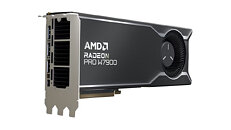- Joined
- Aug 19, 2017
- Messages
- 2,929 (1.05/day)
AMD's lineup of Radeon and Instinct GPUs, including the flagship RX 7900 XTX/XT, the professional-grade PRO W7900, and the upcoming Instinct MI300, are facing sales prohibitions in China, according to an alleged sales advisory guide from Dell. This restriction mirrors the earlier ban on NVIDIA's RTX 4090, underscoring the increasing export limitations U.S.-based companies face for high-end semiconductor products that could be repurposed for military and strategic applications. Notably, Dell's report lists several AMD Instinct accelerators, which are integral to data center infrastructure, and Radeon GPUs, which are widely used in PCs, indicating the broad impact of the advisory.
The ban includes discrete GPUs like AMD's Radeon RX 7900 XTX and 7900 XT, which, despite their data-center potential, may still be sold under specific "NEC" eligibility. This status allows for continued sales in restricted regions like sales of NVIDIA's RTX 4090. However, the process to secure NEC eligibility is lengthy, potentially leading to supply shortages and increased GPU prices—a trend already observed with the RX 7900 XTX in China, where it's become a high-end alternative in light of the RTX 4090's scarcity and inflated pricing. The Dell sales advisory also lists that sales of the aforementioned products are banned in 22 countries, including Russia, Iran, Iraq, and others listed below.


View at TechPowerUp Main Site | Source
The ban includes discrete GPUs like AMD's Radeon RX 7900 XTX and 7900 XT, which, despite their data-center potential, may still be sold under specific "NEC" eligibility. This status allows for continued sales in restricted regions like sales of NVIDIA's RTX 4090. However, the process to secure NEC eligibility is lengthy, potentially leading to supply shortages and increased GPU prices—a trend already observed with the RX 7900 XTX in China, where it's become a high-end alternative in light of the RTX 4090's scarcity and inflated pricing. The Dell sales advisory also lists that sales of the aforementioned products are banned in 22 countries, including Russia, Iran, Iraq, and others listed below.


View at TechPowerUp Main Site | Source





